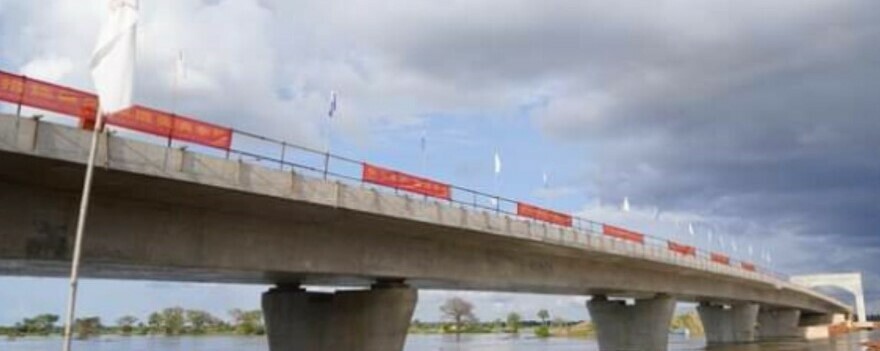Background
The building of the new bridge on the Jur River in Wau has become the year-end debate of 2023 and by all measures the source of the next looming ethnic violence between the disputing Luo and Fertit tribes of Western Bahr El Ghazal State in 2024.
Linking these sociocultural and tribal standoffs to the renaming of the Jur River Bridge to honor late South Sudanese politician veteran Clement Mboro sells the story short, especially to those who are concerned with social harmony and peaceful coexistence in the state.
Indeed, the level of ignorance and incompetence among South Sudanese politicians in the management of ethnic politics is alarming. No state, city, or village in South Sudan has not experienced dysfunctional government policies or biased ethnic intervention that sets communities against each other.
In the case of Wau, it was a matter of time before all recognized the consequences of an apartheid policy that was introduced during the tenure of Gov. Rizik Zacharia in Western Bhar El Ghazal. It was a poorly employed governance policy that called for relocating the Fertit tribal groups from Wau to a new county named Baggari and the Luo ethnic group to a new county named Jur River County in Neynakog. In this context, Wau City was to assume municipal government status within the state.
The Fertit tribes have rejected the policy of relocation, as they claim rightful ownership of Wau. They demonstrated against the government of Rizik Zacharia to seek change or revocation of their relocation to Baggari. Many innocent young Fertit boys have lost their lives in these disputes between Governor Rizik Zacharia and the Fertit in Wau. The Luos, or the so-called Jur, were sensitized by their SPLM leaders to accept relocation from Wau because that would support the SPLM party’s vision of “taking towns to villages.” Further, this policy has led to the formation of the Fertit militia known as the Lions and made the rebellion of Dr. Riek Machar’s SPLM-IO attractive to many members of the Fertit tribes who have joined the movement.
The relocation of the Fertit from Wau to Baggari was not enforced by the government, leaving the commissioner of Baggari operating from Wau with no intention of leaving Wau for Baggari. According to the Luo groups, the arbitrary rejection by the Fertit of the relocation in keeping with the two-communities policy and allowing the Baggari commissioner to operate from Wau has given the Fertit an upper hand in designing the politics and history of Wau, which the Luo also claim as their historical ancestral home.
This has also triggered concern over renaming the “New Jur River Bridge,” as indicated on the original Chinese aid contract, to the currently disputed name of “Clement Mboro”.
Further, these two communities of Luo and Fertit are still recovering from the long war of liberation from 1983-2006, during which the Fertit were recruited in the counterinsurgency militia to fight SPLM on behalf of the government in Khartoum. The majority of members from the Luo and Dinka tribes were targeted in the cities and villages in 1986-1987 because of their over-representation in the SPLA movement.
Current State of Affairs
South Sudan is in deep ethnic and tribal turmoil, with only some ethnic groups being fairly represented at the national level. Both government and opposition groups in the country are ethnic-backed political institutions. The small tribal groups are either allies or came to power through ethnic conflict political settlements. As a result, the country lacks leaders with a clear national agenda who can be trusted by average citizens from the margins. Therefore, there is no room for passing national agenda cards in a society with such deep-rooted sociocultural and tribal issues.
In this context, the government may persist in upholding or imposing the following controversial and divisive tribal policies on the people of Western Bahr El Ghazal, regardless of the heavy consequences these communities would endure now and for generations to come.
- The government will ignore the background and grievances of the Luo community and name the bridge Clement Mboro. This will not sit well with the Luo community and will deepen the rift between the Luo and Fertit tribes. In civilized nations, governments would rather invest in opportunities that sustain peace and peaceful coexistence.
- Also, the government may later insist on the implementation of apartheid policies of relocating the communities of both the Fertit and the Luo outside of Wau. As has been proven so far, that would cause unrest among the Fertit tribes and will never be considered a viable option.
- No one dares to acknowledge that the communities of both the Luo and Fertit are indigenous African tribal groups who have managed to live in peace and harmony from the 1800s to date, regardless of who came first or last.
- These two communities should recognize that the country is currently being ruled by tribal elites found in all of the tribes in South Sudan. These elites do not believe in what their ancestors have created or in the values of harmony and peaceful coexistence. Instead, they would like to continue building their political power over the skeletons of the South Sudanese.
In short, the situation in Wau is critical; however, the approaches that the politicians and the so-called opposition are employing to resolve the issue are ineffective. The so-called national government in Juba lacks basic political wisdom, vision, or national consciousness when it comes to addressing issues of ethnic politics. In many cases, they are the creators of such conflicts.
Kon K Madut is a part-time professor at the University of Ottawa’s School of Political Studies in Ottawa, Canada, and can be contacted via Kon.K.Madut@uottawa.ca
The views expressed in ‘opinion’ articles published by Radio Tamazuj are solely those of the writer. The veracity of any claims made is the responsibility of the author, not Radio Tamazuj.




